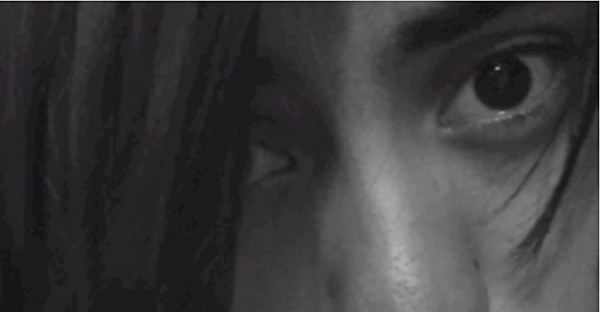EL PASO — Rudy Sanchez’ sad eyes peered through tears below the beanie that nearly covered them as he stood in the empty living room of his Lower Valley home where his 14-year-old daughter, Viviana Aguirre, had committed suicide after being bullied online by a friend.
Sanchez, 43, described how Viviana went to bed the night of January 2and left one final message on her Facebook account. “Before I do this, thank you to all who tried to keep me up. But hey, it didn’t work. Bye.”
Although most cases of bullying don’t usually end in death, it is a growing and serious problem among students, experts say. According to the website stopbullying.gov, at least 28 percent of U.S. students in grades six to12 experienced verbal or social bullying.
Among high school students, 20 percent say they have been bullied, and 16 per cent say they were victims of electronic bullying. Among LGBT students, 55.2 percent said they have experienced cyber-bullying.
Dr. Steve W. Johnson, a professor in the UTEP Department of Educational Psychology and Special Services, and a family counselor for more than 18 years said that verbal bullying that includes teasing reached the height of public attention in 2005.
Johnson says that kids today talk down to each other more commonly as part of their everyday speech. The ones getting bullied get it worse. “It hurts their feelings but they will never let it show,” Johnson said.
“They will internalize it to the point that they will want to harm themselves; in some cases succeed in killing themselves,” Johnson said. “In other cases they will lash out in aggressive ways because they can’t take it anymore… the ones who are in the middle are more likely to ask for help.”
Johnson said bullies usually target a weakness in their victims that makes them a target. He believes research shows that the more introverted someone is, the more likely they are to be bullied. “Sometimes it’s just the quiet ones, the one who looks scared or appears not to fit in.”
Johnson says there usually isn’t a correlation between bullying at school and a victim’s behavior at home. “If you could talk to them (the parent) many say they didn’t see it coming. They live in two different worlds of school and home.”
When the problem is cyberbullying, he said, “there is no personal contact, all is on the page and typed in, there’s no risk of getting hit.”
Yesenia Huerta, 19, who suffers from cerebral palsy, says she has been bullied at school and in public places her entire life. Born three months prematurely, she suffered a stroke in her mother’s womb and was born with the disease, which affects the brain and nervous system. Huerta says the bullying got worse because of social media.
Huerta, who now works as an advocate in the community against bullying, recalls how classmates would tell her, “you can’t sit here, you’re weird, or we don’t want to catch what you have.”
As she described episodes of cutting herself with a razor blade on her arms, Huerta began to cry. “Bullying is not a game, self harm should not exist,” she said. “But it’s this society that plays with your head; what the hell am I to do?”
Recently, she said, choking up, someone posted a message on her Facebook page that she was ugly and “a waste of space.”

Yessenia Huerta, who suffers of cerebral palsy, has been a victim of bullying since elementary school. Photo credit: Helen Yip
“Kids are afraid to get on their Facebooks because you don’t know what you might find,” she said, adding that she has has received messages such as “nobody is going to want a depressed little girl like you, the exact same words Vivana was told.”
Huerta said she attended Viviana’s candlelight vigil on January 6. Although she didn’t know her personally, she delivered a powerful speech. “I made a promise to her (Viviana) that I was going to share my story in her name,” Huerta said.
Huerta said she still faces bullying on social media regularly. People still tell her negative things on the internet. “There was a group (page) made for me. It hurts.”
The memory of Viviana’s death from cyber bullying still haunts the Aguirre family, an extended family of 12, that includes Rudy, one son and his wife and another daughter and various cousins. After the teenager’s death’s the family decided to move from the home in the Lower Valley to East El Paso.
Sanchez provided some details of the circumstances leading to his daughter’s suicide, including the fact that Viviana had broken up with a female friend who she’d had a close relationship with.
“Viviana had a hard time with it,” said Sanchez from the almost empty house where Viviana died. He explained that after the breakup the the girl began to leave his daughter messages on Facebook. “The girl started telling Vivana to kill herself and how to kill herself.”
Sanchez explained that his daughter had shown signs of mental distress but he never thought she would end her life. “She would cut herself, but there was never any time she said she was gonna do it,” he said.
“That doesn’t make her any less of a human being… you pick on someone with a mental issue; that’s worse.”


I am so sorry for your loss. I am in 8th grade and i have never been bullied or cyberbullied but i know that cyberbullying is one thing that we have to put a end to. i mean there was suppose to be a law about cyberbullying but it failed and i am so confused of why that failed because it is a big issue right now and people are ending their lives because of it. I AM VERY SORRY FOR YOUR LOSS